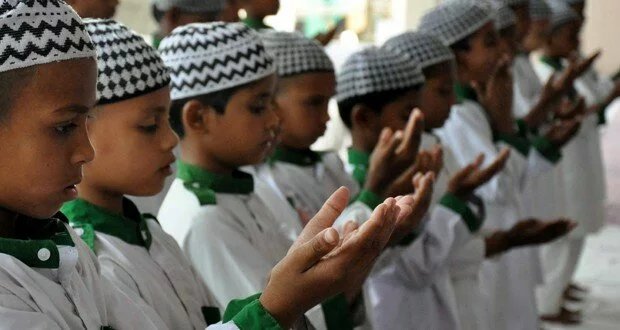Hyderabad, June 19: The organisations/individuals involved in collection and distribution of Zakat or donations meant for poor Muslims apparently believes in show-off than extending real help to the beneficiaries. They take complete liberty in spending the Zakat and donation amounts as per their will.
For instance, in Ramzan of 2012, the rich and NRI Muslims contributed about Rs 1.27 crore to a prominent organisation towards Iftar food, Fidya and Fitra and Eid clothing for poor Muslims. Shockingly, the organisation has wasted a large amount in logistics and operations.
As per the organisation’s report sent in an e-mail to all donors and potential donors last year, an amount of Rs 1.18 crore was spent on Iftar food, Fidya and Fitra Packs. It is good that these packs were sent to the deserving poor Muslims. However, a huge amount was wasted in procurement, packing, transportation and distribution of the food packs. More than 130 staff members (must be salaried/on daily wages) were involved in the entire exercise.
The material was purchased from four different places and packed in specially designed cartons and transported to the district head-quarters and from there to the distributing points. It is noteworthy that the food material could have been easily purchased and packed in the district head-quarters itself to avoid transportation costs. Instead of saving money, 67 trucks were hired to transport the material. A huge amount was also spent to get branded cartons/packs to ensure visibility of the organisation’s name both among the donors and beneficiaries.
Further, each and every member who might have consumed Iftari was counted. Besides mentioning that Iftar food packs were distributed among 17,957 families; Fidya packs among 660 families and Fitra packs among 3001 families, the organisation promptly mentioned that the total number of “beneficiaries” were 64,850 people. It means every person who ate even a date or banana was counted among “beneficiaries”.
When asked by INN Live, the organisation did not answer whether it justifies the huge spending on logistics, operations and transportation of these materials.
If we divide Rs 1.18 crore spent on food grains, then each of 64,850 “beneficiaries” got an average of Rs 183. In comparison, the staff members of the organisation, the suppliers, the transport guys and others involved in the operation got more money than the deserving beneficiaries.
Instead of wasting money on manpower, logistics, transportation and the administrative expenses, the organisation could have helped more number of beneficiaries by making direct cash payments asking the beneficiaries to buy food items locally. Direct payment of Rs 1,000 each would have helped 1,118 poor families to buy food for at least 10 days of Ramazan. Since 1,118 is a small number compared to 64,850, the organisation preferred the latter as it sounds impressive.
Contrary to this huge expenditure, a mere Rs 9.35 lakh was spent on Eid clothes distribution. As many as 27 cars were hired to distribute 3,200 sarees with blouse and Eid clothes among 529 girls and 262 boys. Why this distribution was not merged with food distribution? It could have saved a few thousand rupees which belonged to the poor Muslims.
The organisation should be appreciated for maintaining the perfect record of its activities. However, its focus was primarily on highlighting the number of beneficiaries. Since numbers speak louder than words, the organisation used numbers appropriately to receive pat from the donors and well-wishers. These numbers would certainly help the organisation get more contributions this year and therefore, it can hire more number of staff, more number of cars, more number of trucks, more number of branded cartons to distribute food items in more number of villages among more number of “beneficiaries”.
(TO BE CONTINUED….INN Live has not named any organisation/individual in its story. We do not wish to harm the practice of mass collection of Zakat as it has been benefitting thousands of poor Muslims, specially the students. However, our intention is to weed out the fake organisations/individuals and bring awareness among Zakat payers that their money should reach the real beneficiaries)
 INN Live Urdu News Channel – India Breaking News, Headlines, Hyderabad اردو خبریں
INN Live Urdu News Channel – India Breaking News, Headlines, Hyderabad اردو خبریں


